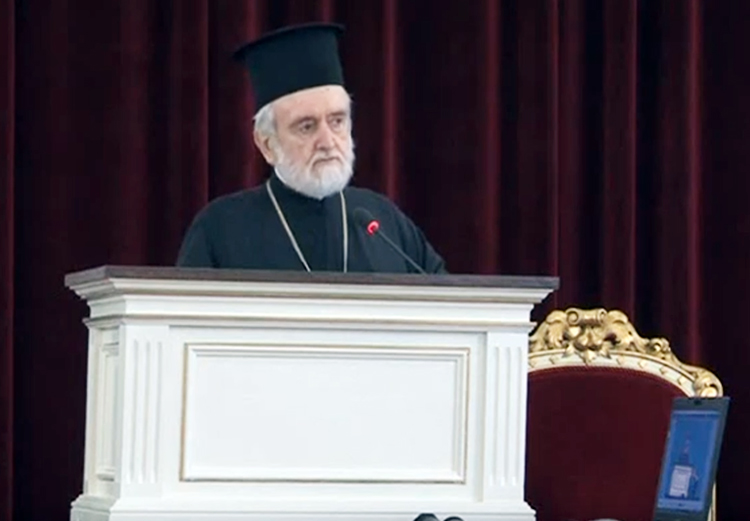International Symposium on Saint Maximus the Confessor, Belgrade, Serbia, 2012
In the present paper, John Zizioulas uses the theology of St Maximus as a criterion for theological personalism in general and his own work in particular. Zizioulas offers clarifications concerning the alleged dichotomy between nature and person and the conflict between these two in his work. “Freedom from nature” means, in his writings, not to subject the particular to the universal by giving priority to substance over hypostasis in ontology, and at the level of experience (so-called “existential”) to seek redemption from the present (fallen) state of existence in which nature is imposed on us as a necessity (ἀναγκαίως, in the words of St Maximus), particularly through individualism (in both its ontological and its moral sense) and death. This redemption is offered by Christ and constitutes the object of asceticism. Nature and person are linked up together in ontology as the general (universal) to the particular, or the “one” to the “other” (or “the many”): there is no nature without person, and vice-versa. And there is no conflict between these two, except in the fallen state of existence. Nature and person form two inseparable aspects of being. Yet—and I have insisted on that in my writings—there is a dynamic, a movement, in being, a sort of “causation.” Nature and person do not co-exist statically and “symmetrically,” neither in God nor in creation. Theological personalism is meant to affirm, not to diminish, the dynamism of nature, not, however, by allowing nature to be “self-existent” (Maximus, as we have seen, rejects the philosophers’ definition of substance as the “self-existent”) and self-moving but by making the person move and raise nature above nature (ὑπὲρ φύσιν),72 i.e., by liberating it from the vicious circle of the tautology of self-existence to which a certain type of philosophy has condemned it.
October 20, 2012
In the present paper, John Zizioulas uses the theology of St Maximus as a criterion for theological personalism in general and his own work in particular. Zizioulas offers clarifications concerning the alleged dichotomy between nature and person and the conflict between these two in his work. “Freedom from nature” means, in his writings, not to subject the particular to the universal by giving priority to substance over hypostasis in ontology, and at the level of experience (so-called “existential”) to seek redemption from the present (fallen) state of existence in which nature is imposed on us as a necessity (ἀναγκαίως, in the words of St Maximus), particularly through individualism (in both its ontological and its moral sense) and death. This redemption is offered by Christ and constitutes the object of asceticism. Nature and person are linked up together in ontology as the general (universal) to the particular, or the “one” to the “other” (or “the many”): there is no nature without person, and vice-versa. And there is no conflict between these two, except in the fallen state of existence. Nature and person form two inseparable aspects of being. Yet—and I have insisted on that in my writings—there is a dynamic, a movement, in being, a sort of “causation.” Nature and person do not co-exist statically and “symmetrically,” neither in God nor in creation. Theological personalism is meant to affirm, not to diminish, the dynamism of nature, not, however, by allowing nature to be “self-existent” (Maximus, as we have seen, rejects the philosophers’ definition of substance as the “self-existent”) and self-moving but by making the person move and raise nature above nature (ὑπὲρ φύσιν),72 i.e., by liberating it from the vicious circle of the tautology of self-existence to which a certain type of philosophy has condemned it.
October 20, 2012


